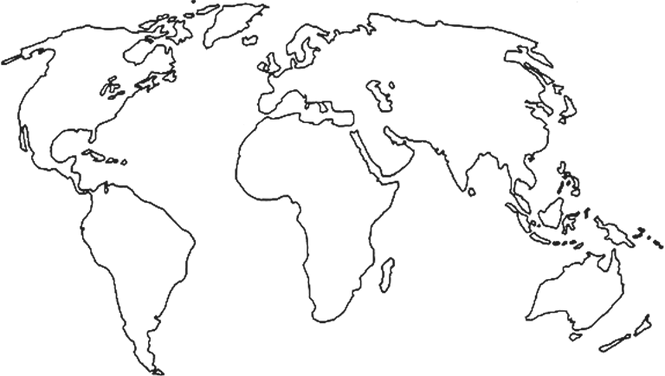HISTORY OF P4C
With roots reaching deeply into American Pragmatism and the thought of such philosophers as John Dewey and William James, Philosophy for Children (P4C) is widely respected as a direct response to the international crisis in education.
p4c converts traditional classrooms into reflective communities of inquiry where students and teachers continue to develop their ability to think for themselves in responsible ways. p4c began around 1969 when Matthew Lipman, a Colombia University philosophy professor, became disenchanted with the educational system. He observed that children did not think as well as they could or should in a democratic society.
He was also concerned that schools actually encouraged children to have a negative view of their own intellectual abilities. To address these issues Lipman created a curriculum that incorporated the skills of logic and reasoning found in the practice of philosophy to improve students’ thinking in the K – 12 setting. In an effort to extend Lipman’s original curriculum and vision to a variety of geo-cultural contexts, a number of p4c Centers have been established worldwide.
Education
WHO WE ARE
p4c Hawai‘i is comprised of professors, graduate students, K-12 teachers, administrators, and primary and secondary students.
WHAT WE DO
p4c Hawai‘i is an innovative approach to education that is transforming the schooling experience by engaging people in the activity of philosophy. p4c Hawai’i is dedicated to preparing, supporting and sustaining educators, researchers and students who engage or are interested in engaging in p4c worldwide. The Academy supports research and education for the development of intellectually safe communities of philosophical inquiry in our classrooms and schools.
WHY P4C?
Something is missing in schooling. Frequently, by the time children reach third grade, the sense of wonder with which they entered kindergarten – wonder out of which authentic thinking and philosophy develops – has begun to diminish.
By 6th grade it has practically disappeared. A major contributing factor to this loss of wonder is the failure to properly nurture the true voices of children. Children’s thinking focuses instead on what the teacher expects and it is rare for students and teachers to regularly have the opportunity in a classroom setting to inquire together into topics and questions that make a difference in their lives.
Schools instead encourage students to be uncritical consumers of information and their individual interests, questions, comments, experiences, beliefs and curiosity are completely ignored. Due to a variety of pressures, both internal and external, the typical classroom teacher does not appear to have time for children’s genuine wondering and questioning, from which structured inquiries can grow. This apparent lack of time is exacerbated by the fact that most teachers simply have never been exposed to this type of inquiry. Such inquiry requires a pedagogical shift from teacher to co-participant where no one knows where the inquiry will end up. If teachers are ever to use p4c this successfully in their own classrooms, they need time and guidance in learning how to conduct such inquiries.
Schools must move from being institutions that provide students with extrinsic meanings to institutions that provide students with the necessary circumstances and tools that will allow each to personally construct meaning in their own learning and lives. The goal of p4c Hawai‘i is to move school culture from a top-down model to a community-based, participatory model grounded in sound pedagogy and effective educational philosophy. While guided by this goal, p4c Hawai‘i recognizes that meaningful reform is not and never will be a “quick fix.” From the beginning its approach has been to start with the teachers and to then find every way possible to support these teachers both in their classrooms and as faculty in a school setting. This has helped to create a deep seated commitment among the teachers to p4c as a basic approach to teaching, not just another passing programmatic fad.
Uehiro Foundation on Ethics and Education
In order to meet the need for greater insight into ethical issues and their social consequences, Mr. Eiji Uehiro, a noted ethical leader in Japan, established the Uehiro Foundation on Ethics and Education (UFEE) in 1987. UFEE is and independent Public Interest Corporation based in Tokyo, Japan. The main goal of UFEE is to encourage research and public discussion about ethics and education and the inter-relationship between them. The UFEE has generously supported p4c Hawai‘i since 2005.
The Uehiro Academy for Philosophy and Ethics in Education is located in the University of Hawai‘i at Mānoa’s College of Arts & Humanities and supports research and education related to the preparation, support, and sustaining of educators, researchers and students who are developing intellectually safe communities of philosophical inquiry in their classrooms and schools. The Uehiro Academy serves students and teachers from Hawaiʻi, the U.S., Japan, and other international locations.
VISION
Education for the purpose of creating intellectually responsible communities.
MISSION
p4c Hawai’i is dedicated to preparing, supporting and sustaining educators, researchers and students who engage or are interested in engaging in p4c worldwide.
GOALS
1) Prepare, support and sustain p4c Hawai‘i educators
2) Prepare, support and sustain p4c Hawai‘i research
3) Prepare, support and sustain p4c Hawai‘i student
4) Develop and grow institutional capacity of Uehiro Academy to carry out above goals
In order to meet the need for greater insight into ethical issues and their social consequences, Mr. Eiji Uehiro, a noted ethical leader in Japan, established the Uehiro Foundation on Ethics and Education (UFEE) in 1987. UFEE is and independent Public Interest Corporation based in Tokyo, Japan. The main goal of UFEE is to encourage research and public discussion about ethics and education and the inter-relationship between them. The UFEE has generously supported p4c Hawai‘i since 2005.

SOME OF OUR LOCATIONS
Honolulu, USA
Tokyo, JAPAN
Michigan, USA
Perth, AUSTRALIA
Leeds, UNITED KINGDOM
DENMARK
